#Community Management
Explore tagged Tumblr posts
Note
On premium non-lifestyle games: As a success metric for the developer/publisher, how much does playing a game matter compared to purchasing it? If I like a game's premise and decide to buy it, but have no intention to play it any time soon, is my purchase less valuable to them?
In terms of value, a player who buys the game but doesn't play it much is slightly less valuable to the publisher than a player who plays a lot.

The most valuable players are the evangelists, the hard core players who will engage with the community, make content about the game, and serve as volunteer brand ambassadors to the community at large. These are our cosplayers, fan artists, bloggers, youtubers, fan fic authors, and so on. These people not only play the game, but also help encourage others to play the game as well. These players go to conventions and events. This cohort typically comprises less than 1% of all players.

Most regular players fall in the second group, the engaged players. These are players who will play the game regularly, maybe they'll read the patch notes as they drop or engage with new content that appears. Some of them will buy merch. They're the ones who play regularly and keep coming back. They're the primary consumers of the post-launch content. We usually see around 20-40% of players fall into this category.

A good 60-70% or so of players will buy a premium game and quit before finishing it, let alone engaging with post-launch content. We value these players for their contribution, but they don't really factor too much into our post-launch content plans since they have clearly fallen off of the game. We primarily think about how we can convert more of these players to engaged players in future game releases, as well as what these players did engage with in the game and how we might lean more into that. You probably fall into this category.

At the very bottom of this list are the gamers who haven't played the game and comment on social media. We consider how we might sell a future game to them, but they have basically zero effect on our plans for content and very little for sequels because they have no investment in the game other than talking about it.
[Join us on Discord] and/or [Support us on Patreon]
Got a burning question you want answered?
Short questions: Ask a Game Dev on Twitter
Short questions: Ask a Game Dev on BlueSky
Long questions: Ask a Game Dev on Tumblr
Frequent Questions: The FAQ
74 notes
·
View notes
Text
Worse than Trolls: Engagement Optimisers, Tourists, Socialisers, and Enablers
As I previously explained, most online content moderation falls under I-know-it-when-I-see-it. There is very little else to say. People know spam when they see it, and I don't need to define what spam is. Spammers know they are spamming, and are unable and thankfully unwilling to argue your moderation decisions.
On the other end of the spectrum, there are ever so slightly corrosive behaviours than can destabilise an online community in the long term, often without the perpetrators knowing it, or at least without bad faith, without ill intent.
Engagement Optimisers
Users naturally optimise engagement by responding to feedback. When posting memes and cat pictures is rewarded, users post more cat pictures. When posting memes is rewarded, users post more memes.
If your users start to do this on purpose, you might have a problem. For example, somebody might notice that clickbait titles lead to more click-through in forum threads. The people who give their threads vague and mysterious titles get more replies. The people who add a call to action to their OP get more replies: Please share your opinions in the comments below. The people who ask broad, open-ended and opinion-based questions are more likely to get more replies: What programming language should I learn?
If somebody says something contentious or inflammatory by accident, that's fine. You morally can't fault them for sincerely held beliefs or misconceptions, or for soliciting a broader base of opinion. Only when done on purpose, and systematically, it becomes dangerous.
You may end up with a situation where power users learn to play the game and play it better and better, at least better than most users. This can give the people who learned to game the system outsized influence, even when there is no algorithm or karma or no way to spend the karma, because they gain more mindshare and notoriety.
You may also experience a systemic change, because many or most users catch on, and start modifying their behaviour and post different content in order to get noticed.
Still there is the possibility that your users, through group dynamics nobody is consciously exploiting, reward and promote mostly cat pictures and stupid puns, even though no individual user comes to your forum for stupid puns and cat pictures.
Early on in the history of Reddit, this was recognised as a major problem. You could farm upvotes by posting something like "DAE eat chocolate ice cream?", "Upvote if you're going to vote for Ron Paul", or "Linux sucks! There are no good text editors!"
Reddit tried to curb this, somewhat unsuccessfully at first, then more successfully, but in the long run, they lost the battle against their own user base and entropy itself.
Compare this with YouTube, where a call to action is not just allowed, but encouraged by YouTube itself. It's regularly part of the latest set of official tips for creators to grow their audiences. YouTubers thus say "What are your opinions on this topic? Let me know in the comments below!" or "Please like and subscribe".
Tourists
Tourists come in to make drive-by comments in flame war threads. Tourists google a question, find your forum, post a single question, and leave forever when they get the right answer. Tourists come in from Reddit. Tourists don't play the game. Tourists don't read the forum. Tourists don't read the FAQ.
You can't really punish people for coming to your site or channel and making their first comment. I mean, you can, but then they will definitely not come back.
Churn is bad. Tourists are churn personified. If most content comes from tourists, then your community culture is defined by tourists. You lose the ability to shape the culture of your site. It's easy to deter tourists, but it's hard to do so without also deterring people who would otherwise have become proper contributors or community members.
If somebody joins your web site, doesn't read the rules, doesn't read the FAQ, creates more work for the moderators, and is a minor annoyance to the established users without ever rising to the level of a serious rule violation, it's easy for that person to say "We all have to start somewhere" or "You'll never attract new people if you keep enforcing the rules like that."
If you have rules about cross-posting or proper spelling and punctuation, you have to be firm. You cannot retreat every time somebody who hasn't read the rules asks "Why are you so mean to me?"
On the other hand, I remember multiple times when I hopped in an IRC to ask a question like "Is this a known bug? Should I wait for the next release?" or "Does anybody want to collaborate on a game jam next month? Is anybody considering joining Ludum Dare?" only to be told "We don't accept bug reports in here. Bug reports need to be entered into bugzilla in the proper format." or "Please post job postings in the jobs channel only!"
Socialisers
Socialisers talk about off-topic stuff only. They hang out in the off-topic board or channel, and they tell everybody about their youngest child, their morning commute, or the story of how they met their spouse. Socialisers rarely engage with the actual main topic of the community, but everybody knows them, because they post a lot of off-topic content.
As long as socialisers know that the forum is about, and know their stuff, it's fine. The guy whose youngest son just got into middle school and who met his wife when they both reached for the last bottle of herbal shampoo at the supermarket isn't really disrupting your anime forum as long as he watches anime. If he could comment about the different animation studios that worked on Sailor Moon, but chooses not to, he's fine. The problem with socialisers only becomes noticeable when they attract socialisers who do not know or care anything about the on-topic content. If that happens, your forum is no longer a forum where some Haskell programmers post their lunch, it's a forum to post pictures of your lunch.
Enablers
Enablers are one step worse than socialisers. They don't just don't contribute on-topic content, they make the discussion actively worse. If you have a rule such as "do no post a maths homework question" or "do not answer personal questions" or "do not ask other people to answer your question in a DM", the enabler will happily comply anyway. "It's no skin off my back" he says, as he answers the homework question. "It's no skin off my back" he says, as he paraphrases the FAQ again. The enabler will make a good-faith effort to answer bad-faith questions, and he will enable people who just can't be bothered to read the FAQ and follow the rules.
Now there may be multiple reasons why you're not allowed to answer personal questions, ranging from OPSEC about pet names and the colour of your car to professionalism, and depending on those, this may be a big deal or not. When it comes to homework or answering in a DM, the reasoning should be straightforward.
The worst kind of enabling is probably taking abuse in stride, and continuing the conversation. If somebody starts insulting the other people in the conversation, the least you could do is disengage. If somebody calls people names because they can't solve his problem, you should not enable him and try to help him, too.
The most subtle kind of enabling behaviour is a response to Cunningham-style trolling. When somebody posts "Linux sucks, there are no good text editors", then the last thing you should do is reward this kind of behaviour. When somebody posts "I can't solve this in Python, I guess C++ is just a better language. I think I should go back and use C++", then you should say "Good riddance, and may the gods have mercy on the C++ forum."
The most common kind of enabling is when people ask a question and can't be bothered to Google it first, and somebody copies the question into Google it and pastes the answer. The long-term consequence of such behaviour is not only a degraded quality of the conversation, but a forum culture where people regularly Google answers (or worse, ask ChatGPT) and paste the result without checking.
Maybe in the future, something like "I asked ChatGPT this, is this true" or "Copilot wrote this code, can you help debug it" will become more common, and humouring these kinds of people will become the most common toxic enabling behaviour.
Drama Magnets/Troll Feeders
Finally, there is a kind of person who enables trolls and harassers by being thin-skinned, very easy to make fun of, and by boosting every insult. There is a certain kind of person who will just endlessly complain about being wronged in small ways, and will take offence to small perceived slights. This allows a malicious actor to get out much more in terms of reactions than he puts in. If a troll can poke somebody once, and get dozens of "Ow ow" and "he poked me" and "woe is me, I have been poked" out of a target, that will only motivate him.
If somebody freely volunteers his weak spots, things he is self-conscious about, ways to rile him up in the form of a profile, carrd, or bio, then trolls will have it even easier.
So What?
Over time, too many enablers, tourists, or drama magnets may or may not ruin your online community. Over time, engagement optimisers can slowly but steadily ruin your community. Socialisers may not notice or care either way.
A code of conduct may protect your community against bad actors, but it can't protect your forum culture from clueless actors. It's incredibly hard to create a good set of punitive rules against this. As a moderator, it's emotionally difficult to enforce rules against this. You don't want to kick people while they are down, and you don't want to punish them for making popular content, even if it's just pictures of kittens and pictures of their lunch.
The only way you can achieve anything is by educating your users, and hoping they give a damn about forum culture.
13 notes
·
View notes
Text
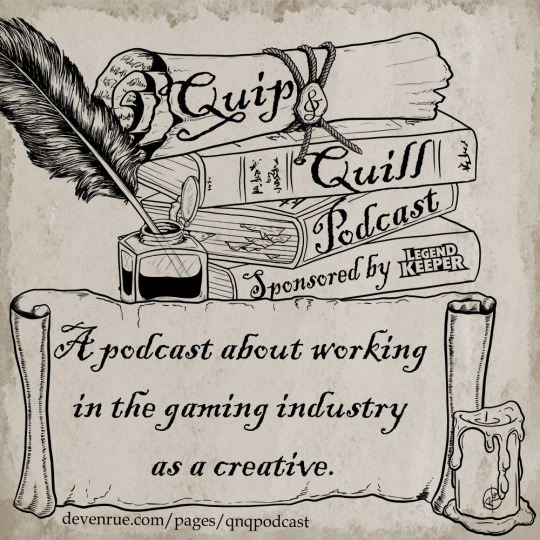
If you've ever wondered what a community manager does & if hiring one would help you, this is the episode for you! Josh Simons, a familiar face in the ttrpg space, was awesome enough to take some time to talk about his job, advice on communicating within the ttrpg space, & loads more. https://devenrue.com/pages/qnqpodcast
12 notes
·
View notes
Text
Sample: Diablo IV Feature Overview (Diablo IV)
One more Diablo thing, then we'll move on. I promise. 😊
While I left Blizzard in early 2020 prior to Diablo IV's launch, I was involved heavily with the announcement plans and reveal at BlizzCon 2019. That was a cathartic triumph of an experience for me—members of the community can tell you I was crying in the audience when the trailer played, because I'd been holding this secret in for so long.
At this stage, I was pretty much the only North American community manager dedicated to Diablo, handling D3, Immortal, and now D4 communications (I did work with a kickass social media manager, though, so I wasn't totally alone). We were in the process of hiring a new manager above me, which was all well and good; I really didn't want to be a manager (and still don't) because I enjoy writing and creating.
I wrote pretty much every article covering Diablo IV on reveal day (and for the whole of BlizzCon 2019), in addition to managing all our influencer activations onsite, posting on social live from the event, and generally ensuring Diablo stuff was running smoothly each day of the event. If I didn't pause to say hi to you, that was why. 😅 Probably the biggest, busiest BlizzCon I was ever involved in.
This and all the other blogs around that time are preserved by the Wayback Machine - I picked this one because it had the best performance out of all our blogs. People really enjoy details, after all.
Warning: this is a very long one under the cut; if you're playing Diablo IV right now, how has the game changed since reveal?
*****
Diablo IV Feature Overview
We know you’re all eager to learn as much about Diablo IV as possible, and we’re incredibly excited to share everything with you! To get you started, we’re taking a comprehensive look over the features and details we’re sharing at BlizzCon 2019 and answering a few of the most common questions you undoubtedly have about the next mainline entry in the Diablo franchise.
*****
The Classes of Diablo IV
At launch, Diablo IV will have five unique character classes, each bringing its own distinct mechanics that embodies their respective fantasy. Today, let’s talk about the first three we’re bringing to life: the Barbarian, the Sorceress, and the Druid.
Barbarian
A brutal, physical warrior, the Barbarian roams around the battlefield constantly, dishing heavy damage and wielding an array of powerful weapons with ease. With the Arsenal system, Barbarians can swap between different types of weapons, such as from a heavy two-handed mace to a pair of sharp, agile hand axes, depending on the situation, skill, and your player needs.

Barbarians will be able to haul around four total weapons and swap between them dynamically at any time. You’ll also be able to assign specific weapons to different skills, allowing advanced players even greater depths of customization.
Sorceress
Harnessing potent elemental powers, the Sorceress is brimming with all your favorite flavors of magic. Fragile but destructive, this high-risk, high-reward hero weaves between Fire, Cold, and Lightning. Her mastery of magic is an iconic and indelible part of the Diablo power fantasy, and we’ve only continued to build upon this sturdy foundation.

You’ll be able to control and dominate enemies with a new Chilling mechanic. The more Cold damage you deal, the more foes will be slowed, frozen, and eventually shattered by your attacks.
Druid
The master of shapeshifting makes his triumphant return to Sanctuary! Seamlessly changing forms from human to Werebear to Werewolf, his command over earth and storm magic is second to none.

Different skills utilize different forms, and entirely new skills like Cataclysm will annihilate hordes of enemies with the unbridled fury of nature itself. Storm magic persists on the battlefield, so you’ll be able to unleash torrents of lightning, wind, and rain before shifting forms to ravage foes.
*****
Skill Points & Talent Trees
Diablo IV will feature permanent character progression as well as personal customization. To accomplish this, we’re reintroducing both Skill Points and Talent Trees.
Skill Points will be earned by leveling up as well as by hunting down rare tomes out in the world. You can choose to spend Skill Points as you go, save them up to invest more heavily in skills that are unlocked at higher levels, spread them out between multiple skills, or focus on your favorites to make them more powerful.

Each class also has a dedicated Talent Tree for further character customization, though your choices may come at a cost. For example, the Sorceress concentrate on skills that emphasize mobility or Lightning damage while passing up more powerful Cold powers in the process. The Druid might choose to become a tanky melee combatant by investing in Werebear talents, though this doesn’t prevent him from using his Werewolf or Caster skills; they’ll just be less optimized. Where you want to specialize is up to you, and your Talent investments will reflect these decisions.
Talents get more powerful the further down the tree you travel, so make sure you’re choosing wisely as you grow!
*****
Open World & Multiplayer Gameplay
Unlike previous Diablo games, Diablo IV is fully open world. This means you can explore any of the five distinct regions in any order, at any time, and travel seamlessly between them. Sanctuary will become a living, breathing place to explore and plunder. With introductions like monster ecologies tied to regions, a shared player world with public events, and town points of interest that act as social hubs, Diablo IV will feel a little less lonely (though no less bleak).
The distinctive regions we’re introducing are connected contiguously, for streamlined adventuring from area to area with no loading interruptions.
Scosglen
Home to the Druids, this verdant and rainy land is heavily forested and borders the coast. Werewolves lurk in the thick foliage and the new monster family, the Drowned, crowd the haunted coastlines, waiting to drag unsuspecting victims to a watery doom.

Fractured Peaks
Snowy and secluded, a sect of devout priests find refuge in the isolation of this high mountain range. They seek enlightenment while remaining unaware of the horrors that dwell in the dark cave complexes below.


Dry Steppes
The unforgiving, harsh environment of the Dry Steppes is home only to the hardiest—or desperate—souls. Be warned; the denizens of this land will do anything to survive, resorting to anything from petty banditry to savage cannibalism.

Hawezar
Witches and zealots call this snake-infested swampland home, scouring the murky depths for ancient artifacts. The unaware will quickly find themselves in dire straits.


Kejhistan
As we’ve seen from previous visits to Alcarnus and Caldeum, the desert shadows of Kejhistan make excellent cover for a group of rising cultists. They quietly plumb abandoned ruins, seeking power to aid the return of the ancient Prime Evils.
To Party or Not to Party
Whether you’re prone to partying up or an independent adventurer, Diablo IV will have a way for you to play.
When it comes to the Campaign, you’ll be able to play through the entire story at your own pace or alongside friends, with progress syncing up to the party leader so there’s no question about what’s been done or what’s next on the checklist.
While most of the world is socially open, certain, smaller parts of each region are campaign specific. Once the campaign objectives have been completed, those areas will also dynamically open to other players. This means you might see another party of adventurers pass you by or you could organically stumble into an event or World Boss other players are already battling. You won’t need to party up to enjoy these activities; whether you decide to join the fray or continue your own journey, that decision remains yours.
Delving Dank Dungeons
Dungeons will be separate, instanced experiences. While you won’t see wandering adventurers alongside you as you delve an abandoned ruin, you can opt to bring up to a party of four players in to tackle tougher challenges for greater rewards.
As has become hallmark to Diablo, Dungeons are randomized experiences, including both their layouts and the events that might occur within them. They can be interior or exterior landscapes, may mix and match between different tilesets, and offer totally seamless exploration; moving from one level or scene to another is now a natural, loading screen-free process.
We’re also introducing Dungeon Objectives, which help guide your adventure and offer greater rewards and increased danger. As you complete Dungeon Objectives, the goals you have will continue to update, and the Dungeon itself might respond by sending tougher enemies and challenges your way. Each Objective has been custom designed to give their Dungeons their own identity and character, and there are hundreds of dungeons with tons of events, ensuring each delve is a unique one!
We’re also evolving endgame Dungeons by building them around three pillars: variety, strategic depth, and player agency. One new system we’re sharing today is what we’re calling Keyed Dungeons. By finding a key out in the world of Sanctuary, you can upgrade an existing Dungeon into a special endgame version with increased difficulty, greater rewards, and dungeon affixes. Between the natural randomization, knowing the strength and affixes you’re going to face, and choosing your skills and equipment in advance, we’re hitting all three of these pillars for a unique, ever-evolving endgame.
Monsters of Sanctuary
You know where you’re going to kill things, and how you’re going to kill them. But what, exactly, is threatening you? Let’s look at some of the enemies you can expect to face in Diablo IV.
Monster Families
To breathe new and realistic life into the world of Sanctuary, we’re taking a fundamentally new approach to how we create and design monsters. Each monster is now part of a Monster Family, which usually includes a handful of different enemies based around a theme and location. Check out one of our new families, the Drowned.
The Drowned are watery entities that can be found around the coasts of Scosglen. You won’t find them anywhere else in the world, and if you’re looking specifically to hunt them down, you’ll need to travel to find them. Each member of the family has a specialty or signature ability that synergizes with other members of that family, becoming stronger when they’re fighting together.
Reimagining Affixes
Affixes work a little differently this time around. While you’ll still see expected effects like Molten, you might be surprised at how the Multishot affix changes up strategic gameplay depending on which enemy it affects.
For example, take the Fallen family. A Multishot enchanted ranged Fallen might throw three projectiles at you, as you’d probably expect. Put that Multishot enchantment on a Fallen Shaman, though, and your priorities change as he begins to revive three of his friends at a time instead of just one. Affixes should change the way you look at and strategize against your enemies, as well as offer different gameplay depending on the monsters they affect.
Ashava and World Bosses
If you got your hands on our BlizzCon demo or watched our gameplay trailer closely, you may have noticed a massive new addition: Ashava. Ashava, the first of our new World Bosses, is an ancient demon lurking below Sanctuary who will take more than just one mighty hero to fell.

Not only will you need to group up (or at least join several other players) to challenge Ashava, but you’ll want to pay close attention to her abilities and carefully make use of your skills. Avoid her deadly strikes with the baseline Evade ability and leverage the new Stagger mechanic in your favor. Rather than having bosses be immune to crowd control effects, they can instead become Staggered, losing some of their capabilities or powering down once a certain threshold has been met. When battling Ashava, Staggering her will shatter her arm blades and greatly diminish the range of her whirlwind attack, making her a little less deadly for you and your friends.
*****
Itemization
It’s not a Diablo game without tons of new loot to find, and we want to share a broad, top-down approach to our itemization. First, you’ll see the familiar return of most item categories:
Normal -> Magic -> Rare -> Legendary/Set -> Ancient -> Mythic
In Diablo IV, we want Legendaries to be just as, if not more, powerful than Set items. We don’t want you to feel beholden to one particular class set to play your chosen style. Ancient items are a system we’ll be leveraging for Seasons, but we’ll dig into that at a later date. As for Mythic items, these will be so powerful you’ll only be able to equip one of them at a time, so choose wisely!
When it comes to combat statistics, we’ve simplified the math problem. Players should spend more time thinking about stats that change how they play rather than solving arithmetic. Attack and Defense will be your bread and butter; one stat for increasing your damage, and one stat for decreasing damage taken.
More complex stats like Attack Speed or Melee Damage Reduced will still exist; however, these are stats that can change your approach to combat in more than a numerical way. While they might still increase your damage output or reduction, they do so in ways that make you think about the battlefield or which skills work best in different situations.
Some items will also boost individual Talents, effectively acting as bonus points spent in them. If you want to go all-in on Pulverize, you can do so with Skills, Talents, and items!
Legendary Powers
Legendaries should fundamentally change the gameplay of abilities, and that’s exactly the approach we’re taking in Diablo IV. The best way to illustrate this is to review a few powers we’ve worked on for the Sorceress skill Teleport.
One Legendary might increase your defense shortly after you Teleport, making it a great defensive escape tool. Another might increase your damage for a short period of time after you Teleport, making you more likely to want to jump into the fray. Still another removes the Teleport cooldown entirely, but now sends you in a random direction, so you have high, but unpredictable mobility. Lastly, we have a power that adds a burst of area damage to enemies upon your arrival.
Combining all these Legendaries can result in some pretty wild and satisfying results, and it’s up to you (and perhaps a little luck) to decide which ones to combine.
Runes
Runes are back and better than ever! Runes in Diablo IV translate to another layer of gear customization. They come in two types: Conditions and Effects. It’s as easy as socketing in one Condition and one Effect to create your own Legendary power. There will be a great variety of both types of Runes and we can’t wait to see what sorts of combinations you come up with.
*****
Frequently Asked Questions
Have a question not covered above? Check out the FAQ below.
Q: Will there be trading? A: Yes. While we’re still working on the details, we know this is a huge community request and we want to reintroduce some level of trading while still preserving the loot-finding experience.
Q: Will there be clans? A: Yes! Clans will be a key feature in Diablo IV.
Q: Will there be PvP? A: Yes. Some areas of the world will offer opt-in PvP experiences where you’ll need to watch your back while you adventure.
Q: Will there be Seasons? A: Yes! Seasons will be returning, and we’d like them to heavily impact your approach to gameplay. More details to come.
Q: Will there be Hardcore? A: Yes! We’ve loved this feature ever since it started as a player-created and self-imposed challenge in the original Diablo.
Q: Is Diablo IV coming to consoles? A: We are working with our partners to bring Diablo IV to both PC and console, including Xbox One and PS4. We have no additional platforms to announce at this time.
Q: What about [insert game feature we haven’t yet mentioned here]? A: We know you have a lot of questions about what the final form of Diablo IV will look like. While we’ve been hard at work on all the art, story, and systems we’ve shown so far, we’re far from done and still quite early in the development process. What you’ve seen this weekend is a high-level overview. As we continue working to get the next iteration of Diablo into your hands, it’s likely many things will change.
*****
A Lot to Share, More to Work On
Diablo IV is early in development, but we just couldn’t wait any longer to share with you where we are so far. While we don’t have any news on when we’ll be moving into our first public access stage, we will be keeping up with quarterly updates available here on the Diablo community site and mirrored on our forums for your easy access.
We’ve got a lot of work to do and even more hell to raise. We can’t wait to see you on the other side!
#community management#Diablo#Diablo IV#Diablo 4#D4#System Design#Game Design#Game Development#Blizzard Entertainment#BlizzCon 2019#BlizzCon
2 notes
·
View notes
Text
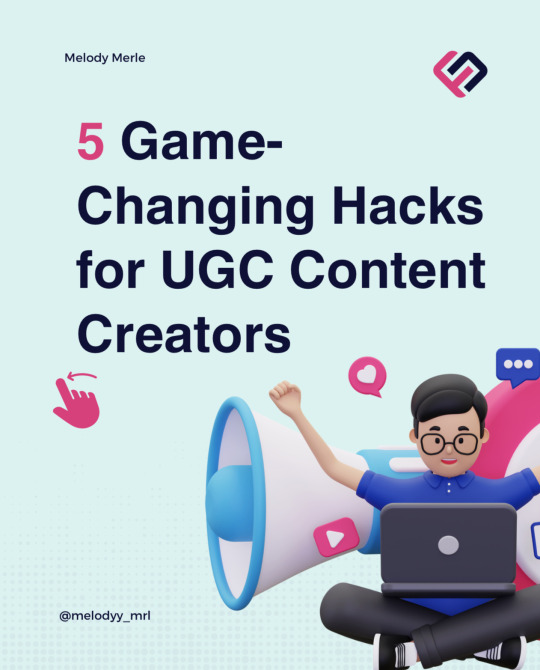

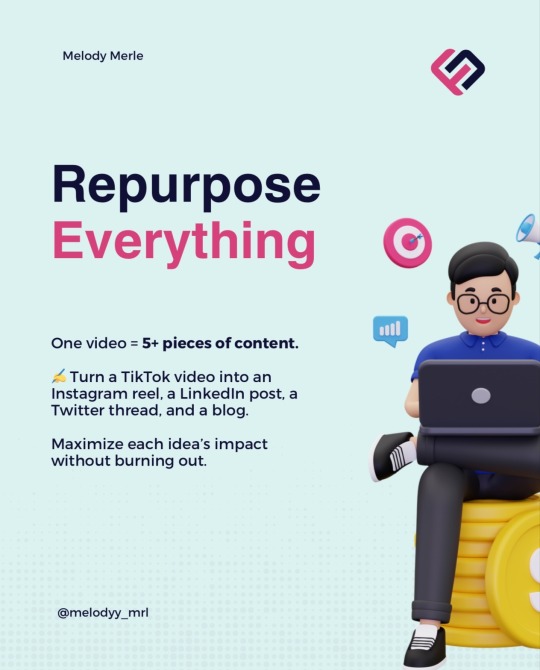
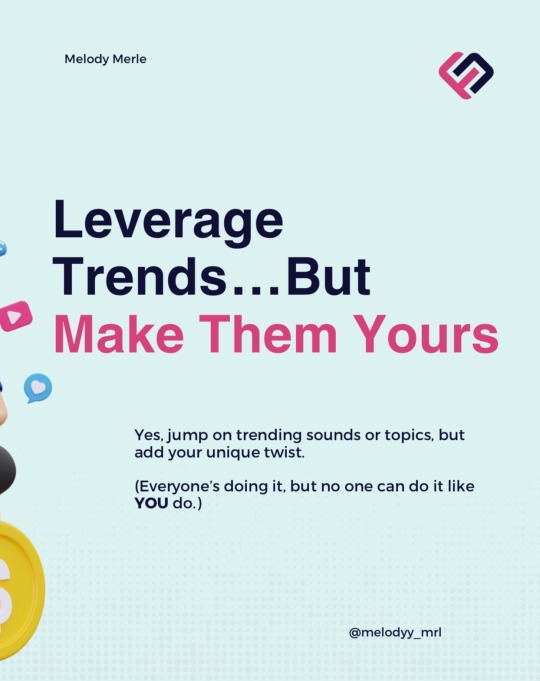
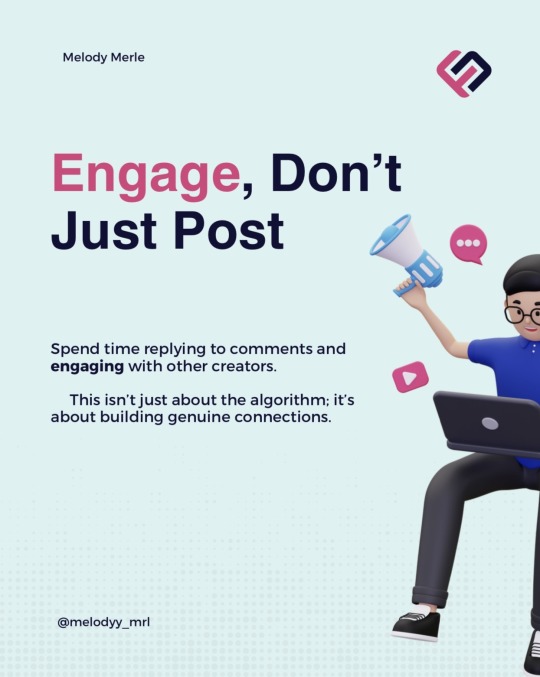
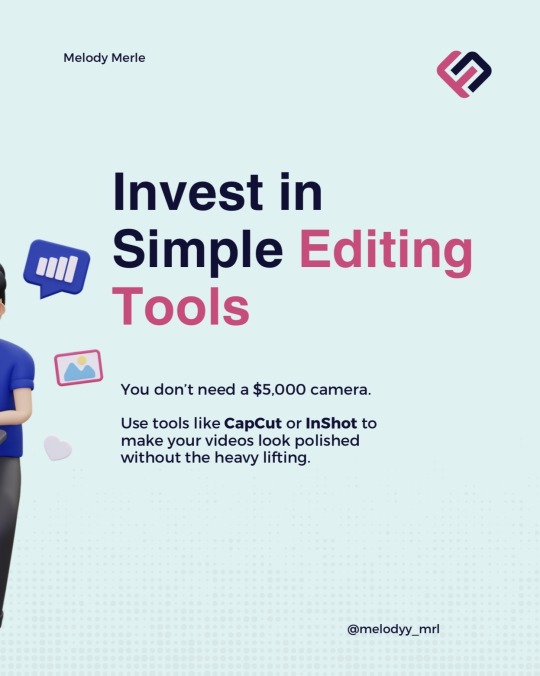
Want to level up your content game without breaking a sweat? I’m sharing 5 game-changing hacks for UGC creators—and the best part? It’s 100% FREE. 🙌🏼
From creating scroll-stopping content to landing those dream collaborations, these tips are your secret weapon.
Ready to work smarter, not harder? ✨
#ugc creator#ugc#digital marketing#social media#community management#instagram#tips#marketing#freetips#tutorial#capcut#content creator
6 notes
·
View notes
Text




041 - Slipping in big words into work conversations. l've actually heard customers say boondoggle twice in the last month or so.
4 notes
·
View notes
Text
¡Explora el mundo del Community Manager! 🌐 Descubre funciones clave y un práctico calendario 2024 en nuestro último artículo.
#gestión de comunidades#community management#community manager#calendario del community manager#calendario del community manager 2024#marketing digital#infotrabajo#copywriting#copywriter#qué hace un community manager
8 notes
·
View notes
Text
An actual blogpost: Community management and social media for creative freelancers with mental health struggles
(Keep in mind that this post is slightly unorganised, in a way, this is a partial vent post, do not judge too harshly, thank you) Honestly, i want to do a bit of a longer blog type of post for once, i want to talk about my feelings, and about community management as a creative person online with mental health problems, and how difficult it really is to run a public community (for example a Discord), and how like, to be honest, sometimes, it's better if you choose not to do it, not every creative person online has to be a "personality", not all of us are entertainers, we create, that doesn't automatically mean we are good at online public social/community manegement stuff I think i realised too late about myself that i am not fit for a "community manager" type of role, i am a music composer (and artist) first and foremost, stuff like handling fights between random people joining your Discord server, or being hyper-aware of all kinds of drama, is not in my skillset at all, and i think a lot of other people are falling in this kind of trap where they feel like they "have to" have a big "personality" presence online and have to have a public Discord server I've chosen to kind of retreat from most social media a little bit, and i scaled down my public social presence accordingly, for example, i used to have a Twitter account with 2000 followers (i consider that a lot for a freelancer composer), and i deleted it because i felt like me putting out random thoughts on an account with a name that is supossed to have professional connotations was uniffiting, especially because it's so hard to delete everything on Twitter; your likes, all your replies, who you follow, everything is visible, even if it's 10 years ago, there is no privacy, and you need to be on your guard in order to preserve your safety and your reputation The thing is; social media encourages us to like, post a lot, and sometimes about stuff that honestly, is better said to friends than to your fans, and that's why i think it's really important to keep a lot of your thoughts and your opinions in private to your friends only, instead of on random Twitter tweets and on public Discord servers Now, imagine owning a public Discord server as someone who is trying to build up a serious professional reputation for freelance creative work and is suffering from a lot of mental health problems and, sometimes, emotional moments? It's a recipe for disaster, at least from my experience, your fans are not your friends, and managing and moderating a public Discord server and worrying about social media stuff is just, not for everyone, honestly, some of us (like me) just want to create, we want to make music, we want to draw, that's what we're good at, not all of us are "internet personalities", and honestly, that's okay I used to want to be like Toby Fox and ZUN, i have changed my mind a long time ago, i never want to become like them, they are revered, they are worshipped, people have such unrealistically high expectations of them, that everything they post online is analysed to an absurd degree, Toby Fox had to delete many of his old posts online to protect his privacy, and even those are all archived, nothing is sacred for people who are obsessed with you And people, THAT is why you should be careful, if you want to build a serious career out of your creative passion, then keep in mind that everything you tweet now, everything you post in public Disc0rd servers now, can be used against you in the future, you need to think about your reputation, and about your mental health, and take steps to ensure that you future-proof so that people cannot use your tweets / posts from when you are at your most vulnerable, or tweets / posts of opinions from 10 years ago that you have changed your mind on long ago already, and use them against you
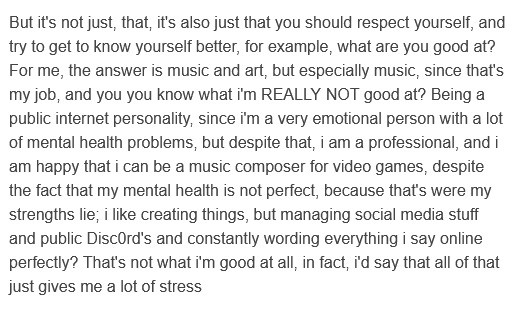
(Sorry i had to screenshot that last part because Tumblr kept giving an error when i tried to post it normally) Sorry that this post is a little unorganised, i actually have a lot more to say about this stuff, but i'm just going to keep it like this for now Let me know what you think please
11 notes
·
View notes
Text
¡Hola! Soy Fátima

Acá podés encontrar todas las redes sociales para las cuales realicé tareas de community management, diseño, creación de contenido y resolución de problemas. Hoy en día me desempeño como Analista de Comunicación en Drofar (https://www.drofar.com.ar/). Me encargo de mantener la página web, la cuenta de LinkedIn (https://www.linkedin.com/company/drofar) y de otras tareas de comunicación interna.
Desde 2020 hasta 2024 manejé las redes de CONEXIONHR:
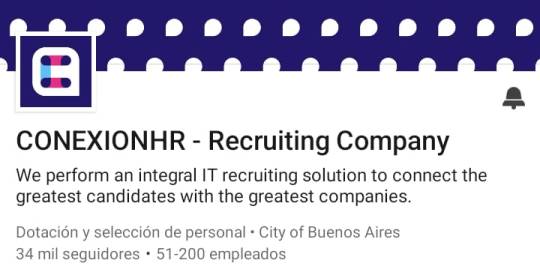



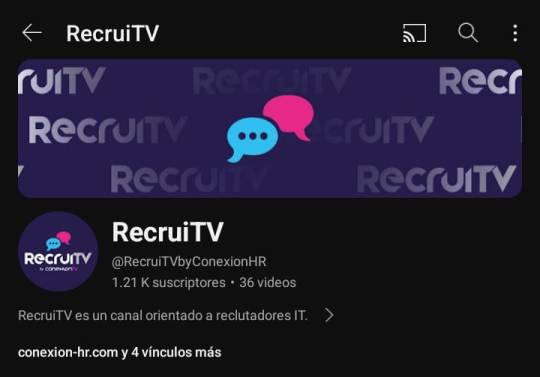
https://www.linkedin.com/company/conexionhr/ https://www.instagram.com/conexionhr/ https://twitter.com/CoNexionHR https://www.facebook.com/conexionhrconsultora/ https://www.youtube.com/channel/UCyRxrINBs-SHUL9uGbxac8A
Y también me he encargado de las cuentas de los siguientes equipos de fútbol amateur: -Águilas (2019 - 2023) -Cremonas FC (2023 - Actualidad) -Club Social y Deportivo Acuariano (2024 - Actualidad)
---- Hello! I am Fátima. Here you can find all the social network accounts for which I have performed community management, design, content creation and problem solving tasks. Currently I am working as a Communication Analyst at Drofar (https://www.drofar.com.ar/), an argentinian pharmacy. From 2020 to 2024 I managed the CONEXIONHR networks: LinkedIn, Instagram, Twitter, Facebook and Youtube (links above).
Also I have been in charge of the accounts of the following amateur football teams: -Águilas (2019 - 2023) -Cremonas FC (2023 - Present) -Club Social y Deportivo Acuariano (2024 - Present)
2 notes
·
View notes
Text
Grim Raider Games Advertising - Level Up Your Brand with Our Expert Marketing Services!
This is a new venture I am proud to become a part of. Are you ready to dominate the digital battlefield? Grim Raider Games Advertising delivers top-tier marketing solutions tailored for gaming, entertainment, and creative industries. Choose the perfect package to grow your brand, engage your audience, and maximize your impact.
💀 Essentials - $999/month
🚀 Manage your community with:
✅ 2 social platforms 🖥️🖥️
✅ Full content creation 🎥🖼️✍️
✅ Daily community management 👥
✅ Weekly metrics report 📈
💀 Essentials Plus - $1500/month
⚡ Build your community with:
✅ 3 social platforms 🖥️🖥️🖥️
✅ Full content creation 🎥🖼️✍️
✅ Daily community management 👥
✅ Weekly metrics report 📈
✅ Posting and scheduling 📣
✅ Direct support 👨💻
💀 Value - $2000/month
🔥 Grow your community with:
✅ 5 social platforms 🖥️🖥️🖥️🖥️🖥️
✅ Full content creation 🎥🖼️✍️
✅ Daily community management 👥
✅ Weekly metrics report 📈
✅ Posting and scheduling 📣
✅ Direct support 👨💻
✅ Bi-weekly strategy call ♟️
✅ Quarterly full report 📊
✅ Stories and live content 🤳
✅ Monthly 500w blog piece 📝
✅ Full Discord management 💬
💰 **Pay in your preferred currency!*
💀 Join the ranks of successful brands! Let Grim Raider Games Advertising take your online presence to the next level.
📩 DM us today on Discord (https://discord.gg/WtDyHuA3) to get started!
#grim raider games#grim raider games advertising#discord#gaming#entertainment#creativity#social media#solutions#community management
0 notes
Text
As someone who did social media moderation and management professionally for several years. It feels like trying to dig a hole while dirt keeps getting piled into it and you try to ask the guy who owns the plot of land if he can help stop people from adding dirt to the hole and he looks you in the eyes and says “I like the dirt guys actually”
I realized all of the issues I had in the spaces I moderated were due to a series of deliberate decisions of the site owners, the culture they had fostered was the reason I had to constantly work to keep bigots and nazis out.
Discord is more manageable, mainly because of the size of the spaces being smaller and the kind of “walled garden” vibe of communities. The moderation tools are so much nicer too compared to other spaces. It still sucks though, any discord server becomes unmanageable without several bots once you hit 1000 users.
and ykno to be fair the fact that social media content moderation is kind of an abject failure as a concept is not, like, super common knowledge. But i think theres a guy who said something about what happens when theres no invesgiation one time
#community management#social media#social media was a fun experiment lets all agree to not do it any more
176 notes
·
View notes
Note
Is there a "wrong/right" way to boycott a game (besides obivious attacks and death threats?
I can't find the tweet nor recall the specifics, but it was about an not related developer talking about how the fanbase should be better in how to boycott or else it would damage the franchise long-term wise in ways nobody wins. Even if what the fanbase was angry about is valid.
The answer to your question entirely depends on what your goal actually is. A boycott isn't a goal by itself, it is a means to an end - usually the players are mad about something and the boycott (or whatever else - review bomb, harassment, doxxing, death threats, etc.) is an attempt at applying pressure to make the developer do something else (among other things like venting a bunch of hurt feelings).

If an angry player wants to vent hurt feelings, then the usual anonymous retaliation methods - review bombing, harassment, threats to quit, petitions, calls for boycott, etc. - are what they usually settle on. These forms of feedback have the lowest overall chances of actually enacting any change and they are the most adversarial of the options, but they are also the way that feels the strongest, like the fan is "fighting back".

If the angry player actually wants to provide feedback, they can do so in a reasonable manner on any officially monitored channel - usually reddit, twitter, official forums, etc. Being honest about what you dislike and why you dislike it is usually enough. If there's enough feedback from enough people, the devs will actually take it into consideration and do it. It's worth noting that this is also the method that takes a really long time to show results. Devs usually don't post responses immediately, and we're [usually working two patches in the future].

Often, the best thing a player can actually do is to find a different game to play. We live in a time where there are so many good games being released that finding a new and interesting game to play should not be difficult. There is often little more than mindset tying a player to a particular game or franchise. Emotional engagement with the players is good for us because it keeps players interested, but the players don't really get that much out of it. I don't think it's super healthy to make a game or franchise a significant part of my identity, so I think it's best to put a little emotional distance between myself and any given franchise. I can enjoy them when they're good, but I can go do something else when things take a turn for the worse. I think more people would do better to take a similar approach.
[Join us on Discord] and/or [Support us on Patreon]
Got a burning question you want answered?
Short questions: Ask a Game Dev on Twitter
Long questions: Ask a Game Dev on Tumblr
Frequent Questions: The FAQ
79 notes
·
View notes
Text
Community Moderation: Some Things Are Easy
In an online community like a forum, a Discord server, a wiki, an open-source project, a multi-player game with in-game chat, sooner or later you run into problems of moderation. Solutions that worked with 50 users don't work with 150 users, or 50 active users every hour.
However, if you are just starting out, you don't need to think about this too hard. You don't need to flesh out your code of conduct, because 98% of the things you want to moderate/delete/admonish are self-evidently actionable. 98% of the time, your users will unanimously back decisions to kick/ban/delete based on hunches or ad-hoc justifications.
This is because 98% of incidents in your online community are not divisive, not in grey areas, not vague. They are spam, scams, insults and harassment, illegal content, and hacking attempts. Focusing on edge cases and rules everybody can agree on is not as important as getting some moderators you can trust to remove the occasional drive-by commenter that posts about fake watches, off-brand sunglasses, or models from that well-known freelance pornography marketplace.
Sometimes there is the odd troll who is clearly just testing the waters and trying to step right to the line and say "I'm not touching you", or "I didn't call you names, this is actually a compliment in French". Even so, if it's just a small space, there is no bigger philosophical implication to just banning people who are being annoying and disruptive if they are deliberately annoying and disruptive, and don't contribute anything positive to the discussion.
98% of moderation is spam, scams, drive-by harassment, and hacking. Don't misunderstand me. I know the last 2% can take a lot more than 2% of the work. Rules about off-site harassment and doxxing can have edge cases, and dedicated trolls can try to circumvent your community's moderation. Once a community has reached a certain size, you may need to deal with an argument between two co-workers who meet in-game, and you will have to decide how this relates to your rules about doxxing and off-site behaviour.
If your community is large enough, you might have to become less lenient about scams and spam and ban more things that border on get-rich-quick schemes, excessive self-promotion, or calls to recruit a personal army for a twitter flame war. It will become harder to just talk it out with community members, and to just ban outsiders who come in and start an argument. You need to develop a policy.
Even then, the first 98% of moderation is easy. It's still just deleting spam, scams, kicking out bots and obvious trolls. It's just that, as the community grows, the remaining 2% cause more and more people to weigh in and argue about the grey areas. You can still shoot from the hip 98% if the time.
I could easily fall into a trap and list a couple of statements that should not be controversial, but are controversial. These will usually make people argue about whether the statement was controversial, or whether it was a complete "non-troversy". But obviously I won't list it, because that is exactly the kind of thing that starts a flame war between people who mostly agree with each other.
Even when it comes to fuzzier topics, such as "where does doxxing and off-site harassment start" or "when does a get-rich-quick scheme become a scam" or "where is the border between spam, excessive self-promotion, and off-topic posting", you get agreement between 98% of your users 98% of the time. The problem is just that the remaining 2% are usually really invested in their own self-promotion, or they are true believers in whatever divisive statement.
Even then, it's often more fruitful for the moderators to quickly tell everybody involved to cool off and take a walk away from the computer. Quick, decisive common-sense moderation trumps explicit rules, unless you are running twitter.
3 notes
·
View notes
Text
a note on community management and how to answer the question of "how do you handle [bigotry]?"
so. i've seen this play out a few times in online spaces recently, where a member of a minority group will ask the question of "how do you handle [aggression against my minority] in this community / space / at this event?" and will receive the answer of "oh! we don't do this here :)"
this is not the answer the people asking the question are looking for. it's not even answering the question they're asking.
the question that is being asked is not "how often does [discrimination] happen in your space?", so answering that question, especially if you aren't part of the minority is going to be extremely unhelpful to straight up counterproductive. because as someone who isn't part of the minority, you are likely not experiencing people being nasty to that minority. as someone who isn't black, i am likely not going to experience antiblackness. however, as soon as a black person is introduced to said space, all sorts of... interesting opinions are likely to make themselves known.
the question being asked is "when someone says something insensitive and i call them out on it, how are you going to handle that?"
the answer to that can look something like "open a public dialogue and talk about what the person meant vs. what came out". it can look like "pull the parties aside in private and hash it out there under supervision". but you should be presenting some sort of action plan or admitting that you don't have one but will try to respond as the offense warrants.
because the answer of "oh, we don't do that here" doesn't communicate that you are all real niceys and tolerant :) , it communicates that all discrimination goes entirely unchecked in your space because you either have nobody who's willing to call it out (either because your group is so homogenous that that person doesn't exist, or because they're holding their tongue for fear of retribution) or that even when someone calls that bigotry out, they get shouted down with "how dare you accuse our beloved community member of [bigotry], we aren't bigots, and you're probably just a [negative stereotype / prejudice / dogwhistle for their minority]"
in any case, the member of said minority will probably just smile politely, thank you for your time, and then proceed to avoid your organisation like the plague.
0 notes
Text
Sample: History of the Crusade (Diablo III)
From 2013 to early 2020, I was a community manager at Blizzard Entertainment, dedicated to the Diablo franchise. The majority of my games career thus far has been at Blizzard, and as a community manager, and one of the most special and important times of my life.
My absolute favorite part of being a community manager was content creation. I loved writing blogs, developing videos, and coming up with really cool, engaging content for players to enjoy. I love Diablo, and I loved sharing that love with other folks who enjoyed the game as much as I do.
While working on the launch ramp up to Reaper of Souls, I was tasked with a lot of preview content generation, and jumped on anything lore related I could grab. I'm also approximately 300% Paladin at heart, so writing about the Crusader and their history was a huge win for me.
I spent time talking extensively to both Leonard Boyarsky and Brian Kindregan, two of our writers and narrative designers on the team. Leonard and Brian are intensely creative individuals who have done tons of incredible work, and getting to channel their creations into a community piece was an honor - and honestly, just a lot of fun!
The original article has unfortunately been taken down from the Blizzard site, but the Wayback Machine snapshot can be found here. As there's no guarantee this will be preserved forever, the text has been copied below.
*****
The History Behind the Crusade

Faithful of Akkhan. Bastions of the Light. Stalwart redeemers of the Zakarum. All of these names could very well describe the newest hero class available in Reaper of Souls™.
Unlike other orders of the Zakarum, the Crusaders bring a distinctly grittier version of a traditional holy warrior to the world of Sanctuary. But where did they come from? What is their role in the Zakarum faith? How will they tackle the looming threat of Malthael on the horizon?
The answers to these questions and many more lay below, so let's kick off our week-long inside look at the Crusader class with some delectable servings of lore!
*****
The Rise of the Zakarum
The Zakarum faith was founded many years ago, sometime after the Mage Clan wars by the prophet Akarat, a wandering ascetic from Xiansai. According to many historical accounts, it was during this pivotal time (in which humanity was beginning to reject magic for the comforts of religion) that Akarat received a startling revelation from a being he referred to as Yaerius, or "son of light" in his native language.
While there is some debate among scholars as to the true nature of Akarat’s prophecy—specifically, whether the "being" Akarat saw was the archangel Yaerius or simply an echo of Uldyssian’s sacrifice at the end of the Sin War—its significance is undeniable. It is said that the vision, manifesting as a magnificent flash of light and energy across the sky, ignited the fundamental belief within Akarat that humans were powerful vessels of light, and that all should seek their "inner light" in order to live good lives.

Upon receiving this revelation, Akarat set out on a grand journey to the cities Kehjistan, spreading word of his findings and encouraging others to embrace the Light he knew existed within them. Although Akarat would eventually vanish from all historical record, his teachings lived on through the people of Sanctuary, serving as the spiritual basis for the Zakarum faith and church. (Fun fact: The name "Zakarum" comes from "Zakara," meaning "inner light.")
*****
Light's Dawn: The Birth of the Crusader
During the reign of Emperor Tassara and shortly before General Rakkis’ historic march to the West, a priest by the name of Akkhan sensed a foul taint growing within the Zakarum church. This taint, unknown to Akkhan at the time, was caused by no other than that of the Prime Evil Mephisto, Lord of Hatred, his darkness steadily seeping from the soulstone which lay beneath the Temple of Light in Travincal.

Determined to redeem his beloved faith, Akkhan sought out the most devout, talented warriors and issued them a sacred mission: find a way to cleanse the Zakarum of decay and corruption once and for all. These warriors traveled to the east, directly opposite the Paladins traveling with General Rakkis, following the rumored path Akarat took in the last days of his life before disappearing.
And so the Crusader order was born.
*****
Amongst the Zakarum: The Crusader's Role
Long time players of the Diablo franchise are likely familiar with the Zakarum faith and may even fondly remember time spent with their Paladin, the playable holy warrior from Diablo II. While Crusaders and Paladins share a devotion to the Zakarum faith, they aren't directly related to one another nor necessarily serve the same goals.
So how exactly do the Crusaders fit into the picture?
Of Paladins Past and Present:
Let's go over what we currently know: a quick overview of the well-beloved Paladin. Paladins are devoted warriors of the Zakarum. Over time since their founding, different sects of Paladins began to form, with separate goals and bases of operation. This includes the Knights of Westmarch, the Order of Paladins, and the Hand of Zakarum.

During the events of the Zakarum Inquisition, the Hand of Zakarum was discovered to be corrupt and collapsed shortly after the events of Diablo II. The Order of Paladins, disgusted by the corruption of their faith, broke away and fled to the west, eventually settling in Westmarch. The Knights of Westmarch, already established from General Rakkis' conquest and eager to diminish their connection to Mephisto's corruption, absorbed the Order of Paladins and disassociated themselves from the Zakarum faith.
These different orders, some intentionally while others as a result of malevolent misdirection, evolved their arts and practices over the years, eventually developing into the Paladins we see today.
The Crusade Continues:
Unlike the Paladins, the Crusaders are an elite and insular group that has seen very little change since their founding, maintaining beliefs and practices most close to the original teachings of Akarat. Though Crusaders may exhibit similar ability to wield and bend the Light to their will as their Paladin counterparts, their fervor comes from a much more pure sense of righteousness. This is in part by design. During their formation, Akkhan made certain to only recruit those with the strongest conviction and battle potential. He also actively avoided bringing in anyone with Paladin training, fearful of any existing defilement or corruption carrying over into his crusade.

As a result of this focused purpose and very guarded lifestyle, the order itself is actually quite small. In total, only 427 Crusaders were sent east, and over time, their numbers have dwindled to the 341 known today. In practice, the Crusaders remain a loosely organized group, often traveling alone or with, at most, a single apprentice—a partnership which will persist until the Crusader's death. When it comes time for the Crusader to lay down their weapon, generally by falling in battle, their apprentice will not only take up their shield and armor, but their name as well, continuing a legacy set in motion so many generations ago.
*****
Starting the Journey: The Nephalem Crusader
As with the other Diablo III classes, the Crusader is a nephalem, their blood pulsing with same hidden power. Hearing the tales of a mysterious star falling from the sky and having exhausted their search in the East, the Crusader has traveled to New Tristram, hoping to discover anything that might save their faltering faith.
Will you take up the flail and shield in the name of the Zakarum? Are you eager to smite your foes with the pure, unblemished power of the Light? Let us know in the comments below if you'll be rolling out your living, battle hardened tank on launch day!
#diablo#diablo 3#diablo iii#Reaper of Souls#Diablo 3: Reaper of Souls#D3 RoS#Crusader#Nephalem#Sanctuary#Lore#community management#Zakarum#akarat#Akkhan#Paladin#Westmarch
3 notes
·
View notes